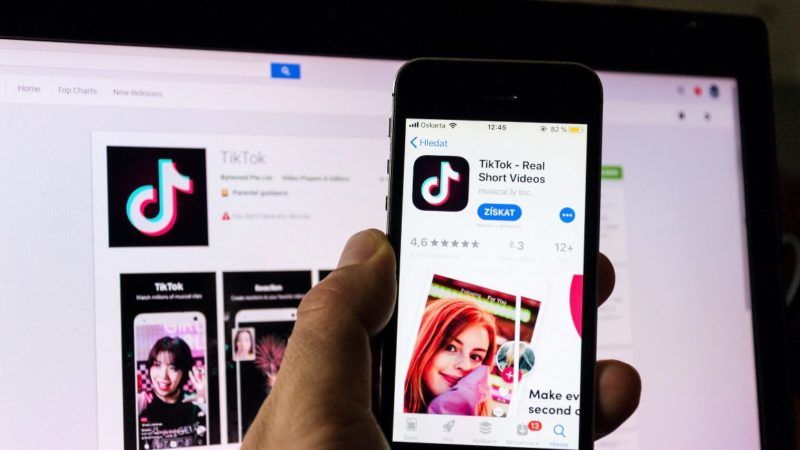Biden Administration Builds on Trump-Era Attempts To Crack Down on TikTok
Are TikTok security risks real or imagined? And will users be served by greater federal government intervention?

When former President Donald Trump issued an August 2020 executive order banning U.S. companies from doing business with China-based ByteDance, which owns TikTok, the only way to circumvent the ban and allow U.S. users access to the popular app would have been through selling the app to an American company. The executive order had effectively banned the app, stymying advertisers' ability to work with TikTok and app stores' ability to sell it.
As Microsoft and Walmart vied for the app, federal courts stepped up and blocked Trump's executive order. The Biden administration rightly chose not to appeal, allowing TikTok's some 100 million U.S. users to continue using the app. For eight months, the new administration seemed to be at a reasonable impasse: Though not dismissive of the national security concerns that rankled Trump and his advisers, it refrained from making any drastic moves without giving the matter further thought. Better still, it refrained from engaging in the type of America-first corporate meddling that Trump had wrongly sought.
Now, President Joe Biden's Department of Commerce is trying a different and much more meddlesome approach. The public comment period just closed on new rules added to the Federal Register which "would expand federal oversight to explicitly include apps that could be used by 'foreign adversaries to steal or otherwise obtain data,'" according to The Wall Street Journal. This would entail forcing foreign apps "to submit to third-party auditing, source-code examination and monitoring of the logs that show user data."
"TikTok has said repeatedly that it doesn't share information on American users with the Chinese government, and that its data is held on servers in the U.S. with backup servers in Singapore," reports the Journal; this justification is apparently not enough to stave off federal government scrutiny, though, as some remain concerned that server placement is irrelevant and that any China-based company could be forced to do Beijing's bidding, unbeknownst to its U.S. affiliates and customers.
"It's not encouraging to see federal powers bullying a foreign company into selling off part of itself to a U.S. company, especially through the threat of an outright ban based on entirely hypothetical fears," wrote Reason's Elizabeth Nolan Brown back in 2020. "The [Trump] administration has offered no evidence that the Chinese government is harvesting U.S. user data through TikTok or to what plausible end people's TikTok data would be valuable to China's leaders."
"There is reason to believe that TikTok is being weaponized by the [Chinese Communist Party]," wrote National Review's John Mac Ghlionn in 2021, claiming that "this is not hyperbole," before failing to detail any specific ways TikTok is threatening U.S. app users' security. (The case against ByteDance overall, and its other products, is much stronger.)
"Remember the major security concerns surrounding Huawei and the legitimate fears of corporate espionage? More recently, in April of this year, the writer and researcher Gordon G. Chang documented the ways in which the Chinese government uses technology to spy on Canadian citizens. Why would anyone assume that the CCP is not doing the same to citizens of the United States, its No. 1 enemy?" he continued. This line of thinking, though common, fails to detail specific ways in which TikTok has compromised U.S. users' data, as well as whether the new federal rulemaking would actually prevent suspect biometric data collection.
The Trump approach involved wrongly meddling in the affairs of private companies, with seemingly little assurance that such a sale would even be approved by ByteDance's Chinese higher-ups. Biden's approach, which could effectively dissuade foreign apps from doing business in the U.S., might not be much better.
Show Comments (12)